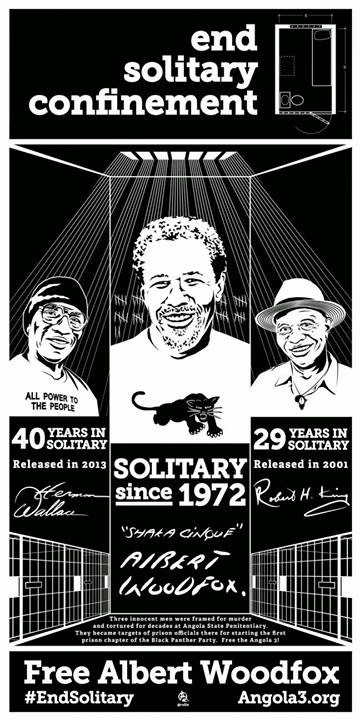Terrorism, COINTELPRO, and the Black Panther Party --An interview with law professor Angela A. Allen-Bell
Primary tabs
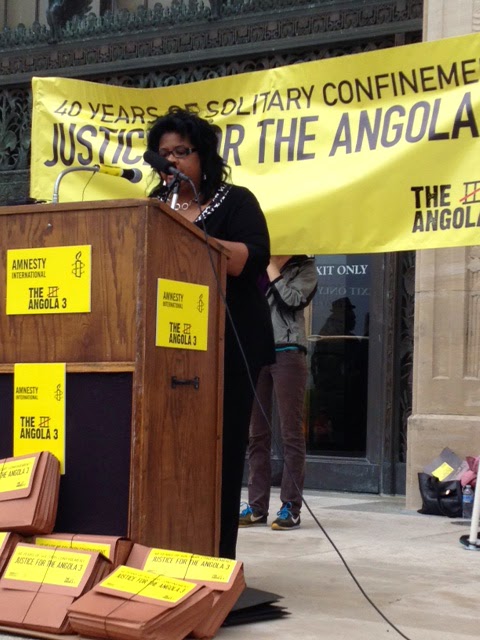 (PHOTO: Angela A. Allen-Bell joins Amnesty International in support of the Angola 3 outside of the Louisiana State Capitol on April 17, 2012.)
(PHOTO: Angela A. Allen-Bell joins Amnesty International in support of the Angola 3 outside of the Louisiana State Capitol on April 17, 2012.)
Terrorism, COINTELPRO, and the Black Panther Party
Burl Cain’s characterization of the BPP as “advocating violence and racism” is reminiscent of a deposition he gave on October 22, 2008, following Albert Woodfox’s second overturned conviction, where Cain cited Woodfox’s affiliation with the BPP as a primary reason for not removing him from solitary confinement. Asked what gave him “such concern” about Woodfox, Cain stated: “He wants to demonstrate. He wants to organize. He wants to be defiant.” Cain then stated that even if Woodfox were innocent of the murder, he would want to keep him in solitary, because “I still know he has a propensity for violence…he is still trying to practice Black Pantherism, and I still would not want him walking around my prison because he would organize the young new inmates.”
In “Activism Unshackled & Justice Unchained,” Prof. Bell concludes that the US government’s multi-faceted response to the BPP, primarily within the framework of the FBI’s infamous COINTELPRO, was indeed the very definition of terrorism. Bell writes that “the magnitude of the unwarranted harm done to the BPP has not yet been explored in an appropriate fashion. Much like a fugitive, it has eluded justice.” As a result, “the FBI's full-scale assault on the social movements of the 1960s and 1970s remains an open wound for the nation itself. This is more than a national tragedy; this is a human wrong.”
 (PHOTO: Billy X Jennings of It's About Time BPP at the first BPP office in Oakland, CA.)
(PHOTO: Billy X Jennings of It's About Time BPP at the first BPP office in Oakland, CA.)
Others suggest the lack of a specific definition is deliberate. In their book, Unchecked and Unbalanced: Presidential Power in a Time of Terror, authors Frederick A. O. Schwarz Jr. and Aziz Z. Huq suggest terrorism to be nothing more than a “political communications strategy” and a “preexisting neoconservative blueprint for a more interventionist American foreign policy, especially in the Middle East.”
They refused to accept inequality and injustice. If they had succeeded in awakening the inner slave in marginalized Americans, there would have been important political change in the US. COINTELPRO was undertaken to prevent these positive changes, to therefore “neutralize” the BPP and to quell their ability to awaken the populace from a self-inflicted state of bondage.
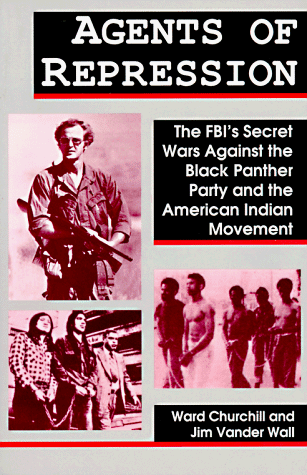 (PHOTO: Important book on COINTELPRO)
(PHOTO: Important book on COINTELPRO)
My article details the numerous ways this dictate was implemented then found that there “are but a few explanations for the stated techniques and that is to intimidate people into conforming to a single belief system, to influence government policy, by intimidation or coercion, so as to eliminate alternative approaches or to affect the conduct of government by mass destruction, assassination or kidnapping.”
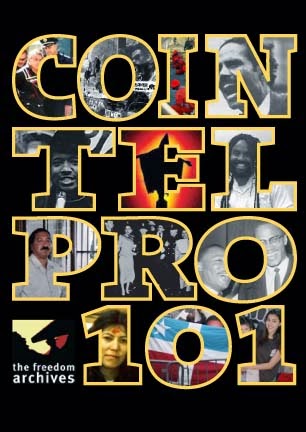 (PHOTO: Important film about COINTELPRO)
(PHOTO: Important film about COINTELPRO)
In addition to this, Angola was segregated in the early 1970s and was the subject of regular litigation. Multiple courts found that state and federal constitutional violations were rampant and violence was comparable to that found in a warring territory.
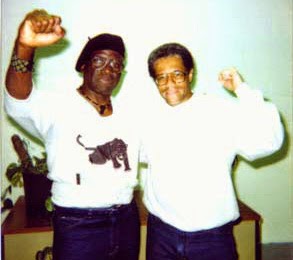 (Herman Wallace, left, with Albert Woodfox, right)
(Herman Wallace, left, with Albert Woodfox, right)
 (PHOTO: BPP collage by Its About Time BPP.)
(PHOTO: BPP collage by Its About Time BPP.)
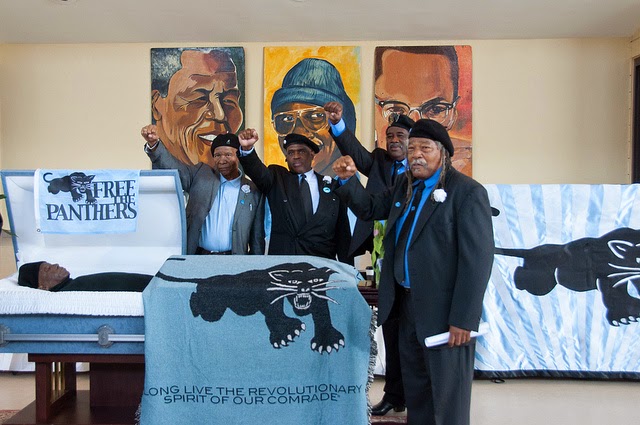 (PHOTO: Herman Wallace's memorial service on Oct. 12, 2013. Image by Ann Harkness)
(PHOTO: Herman Wallace's memorial service on Oct. 12, 2013. Image by Ann Harkness)



